Fight School Drop Out in Shan State, Myanmar
The current situation in Myanmar is more than complex – ethnic minorities are torn between a political crisis, increasing poverty, drug and human trafficking […]
On the 1st of February 2021, just as Myanmar’s Parliamentarians were scheduled to endorse the results of a national election held in November 2020 and form the next government, the Tatmadaw – the moniker given to Myanmar’s military – surrounded the building and rounded up government officials in what proves to be a Coup d’état. Among those detained include the widely-admired Ms Aung San Suu Kyi, who was a Nobel peace Laureate and the then State Counsellor of Myanmar, President U Win Myint, cadre members from the incumbent National League of Democracy Party, parliamentarians, as well as chief ministers from various regions. (The New York Times). This comes after the military alleged that the election, which Ms Aung San Suu Kyi won by a landslide, was fraudulent and repudiated the result. Calling upon its constitutional authority, the military seized control of major institutions, suspended internet connection, suspended services, and declared a state of national emergency much to the indignation and consternation of the general public which eventually ballooned into a rebellion. Since then, the country of 53.8 million has cascaded into civil war with chaos and anarchy now being at the forefront of daily life.
If Covid 19 was a harbinger of gloom to befall Myanmar, then the coup d’état would certainly be the final nail in the coffin. Before the pandemic, Myanmar was already a parlous state with ethnic skirmishes being a common flashpoint, especially along the Burmese-Bangladeshi border. The population has also suffered decades of a despotic military rule while millions still live in absolute poverty despite encouraging growth in Myanmar’s economy. According to the World Bank (World Bank), the country’s GDP per capita has been on the ascendency since the turn of the century, leading to hopeful prospects of millions being lifted out of poverty. However, with the economy left reeling from the aftershocks of the pandemic, the Coup d’état seems to be the cataclysmic storm that finally upended society. Now faced with international condemnation and political isolation, it’s no surprise to see Myanmar’s economy take a further beating. Yet the ones that truly suffer are the ordinary citizens with innocent boys and girls feeling the brunt of it.
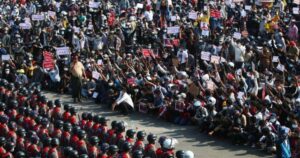
In the 2 years following the coup, Myanmar is now a shadow of its past with years of good work as well as the hopes and dreams of many being extinguished by the civil chaos orchestrated from within. Today, tens of thousands of refugees have since fled Myanmar with the UN Refugee Agency estimating that more than 980,000 people have since been internally displaced within the country (UNHCR). For context, the number of internally displaced people (IDP) in Myanmar as a result of the coup is more than the COMBINED population of the 10 least populated countries by some considerable margin (Global Data). On the flip side, the number of people displaced within Myanmar is also larger than the population of some European nations such as Andorra, Luxembourg, and Liechtenstein combined.
This also does not negate the fact that many are unjustly killed following military crackdowns with children often caught between the crosshairs of civil strife. Since the coup started, the Assistance Association of Political Prisoners (AAPP) estimates that more than 2,900 civilians have been killed and a further 13,870 detained. It’s now a tragic reality to witness children becoming orphans almost virtually overnight. To worsen matters, the coup has annihilated livelihoods. With businesses permanently closed, infrastructure destroyed, and farms and plantations charred, people simply could not get to or obtain work and thus have no chance of sending their children to any form of education.
Even in fortunate instances where kids are sent to schools, families are torn between the trilemma of education, safety, and loyalty to the pro-democratic movement when it comes to deciding whether to send their children back to public schools. Khin Maung Shwe, a 49-year-old father of one, recently came under fire and was berated by his family for sending his daughter to a government-run school. Similarly, Zaw Aung, an anti-coup supporter did not permit his son to attend state-run schools for fear of being indoctrinated (DW). For many families, this trend was driven by the fear of being labeled as traitors by anti-coup supporters, and thus had no choice but to pull their children out of government schools.
In replacement, parents have been sending their children to schools run by anti-coup supporters or private institutions. However, it was discovered that the quality of education in Myanmar has deteriorated significantly since the coup started. “As many as seven out of ten teachers are boycotting and with limited teachers, the quality of education is badly affected” lamented Than Than Myint, a member of a parent-support group at a high school in Yangon. “These poor teachers are trusted in such roles without much training nor experience. No wonder morale is low and quality of education is poor,” she continues (DW). Program delivery within the education sector remains constrained even today due to the tense political environment and civil turmoil that doesn’t seem to abate anytime soon.
Moreover, many of such “alternative” schools are often targeted by the military junta. In the months between May 2021 and April 2022, there have been over 260 recorded attacks on schools with explosions in and around school compounds being common occurrences. There were also at least 33 recorded cases of arson with schools and education centres being set ablaze with teachers and staff regularly being mobbed (Children of the Mekong). Such attacks on infrastructure, teachers, and students have led to many of them being afraid to return and in some cases, no schools left to teach or attend.
Kyi, a 14-year-old girl reported that since the fighting started, teachers have all fled the village and now there’s no one left to teach. Similarly, 9-year-old Tweltar misses her classmates and longed to be able to return to school and start learning again (CPI International). In totality, UNICEF estimates that more than 12 million Burmese children have now missed school for at least 18 months (UNICEF).
This generation of young boys and girls is set to suffer the ill effects of the lack of education if urgent help is not rendered. Research has shown that children who are at risk of dropping out of school altogether earlier in life tend to be victim to drug abuse, and be forced into labour or early marriage. This means that many children with limited skills will grow up with a bleak future, unable to break the glass ceiling and languish in the cycle of poverty.
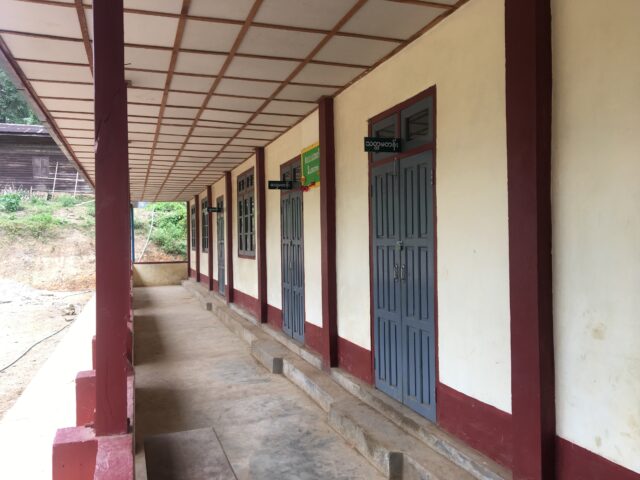
While many have labelled this generation as lost, it would be a pity to succumb to such thinking. After all, the changes and experiences faced by this generation are through no fault of their own. Therefore, while it is still possible, we should do everything we can to support these vulnerable groups of people, especially young and aspiring boys and girls to achieve their dreams for the future. To some, Myanmar may seem to be a distant place but no matter where you may be reading this from, the effects of the coup and its resulting consequences in Myanmar would reverberate globally with profound impacts experienced by all. Therefore, let this episode not be the death kneel of this generation. Let not this generation be truly lost. Let’s all try to do our part and give the children from Myanmar a helping hand.
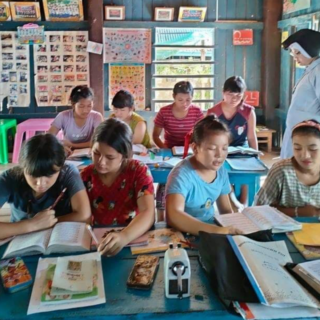
Children of Mekong is a registered charity that strives to lend a helping hand to bridge the socio-economic gap to vulnerable groups in and around Southeast Asia’s Mekong River basin. To this end, Children of the Mekong relies on a strong network of loyal and trustworthy local programme managers who live in the communities. One such instance of Children of the Mekong’s commitment to the vulnerable is the establishment of informal classes in Myanmar. These classes were the brainchild of the local communities in response to the lack of teaching and the boycott of public schools.
Today, many of these informal classes have been established in locales where state schools no longer function, particularly in war zones such as the Kayah, Southern Shan and Karen states. Although specific academic subjects such as mathematics are being taught, the ultimate goal of these courses is to help young Burmese boys and girls continue their education despite the civil chaos, and develop resilience in the face of adversity. In addition, these informal classes serve as a bulwark to protect children from being drafted into the army and prepare them for reintegration back into public school, according to the dissident government’s curriculum (NUG) where possible. More information about such informal classes can also be found here.
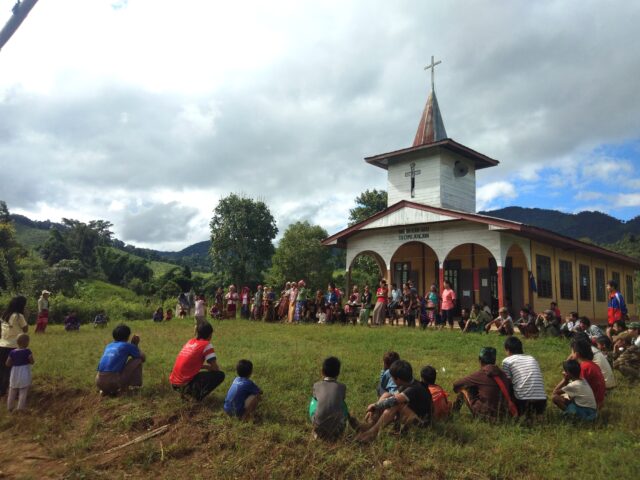
Having experienced civil war, Myanmar is now at an inflexion point. Yet all hope is not lost. Thanks to the dedicated network of volunteers, Children of Mekong have been able to extend our support despite the impending crises. Between March 2020 to October 2022, emergency food distribution and informal classes were provided across Myanmar and have so far reached 95,000 beneficiaries.
You too can play a pivotal role and be a part of supporting Myanmar’s next generation by considering making a donation that supports the informal class programs.
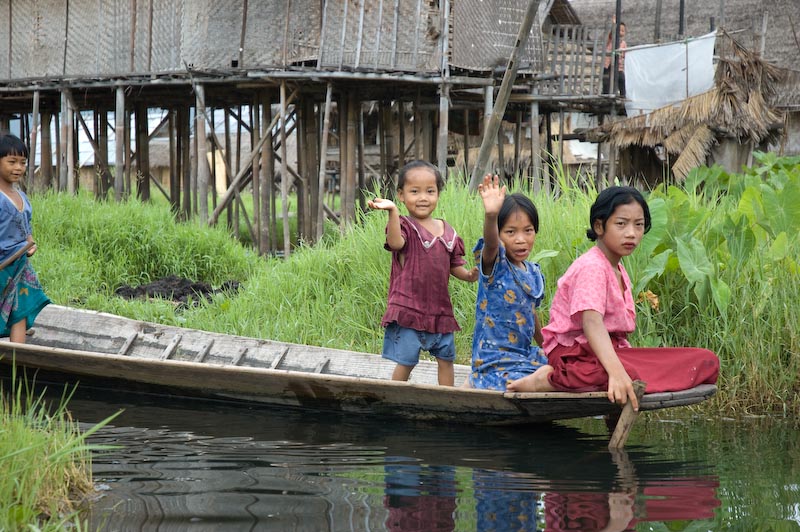
The current situation in Myanmar is more than complex – ethnic minorities are torn between a political crisis, increasing poverty, drug and human trafficking […]
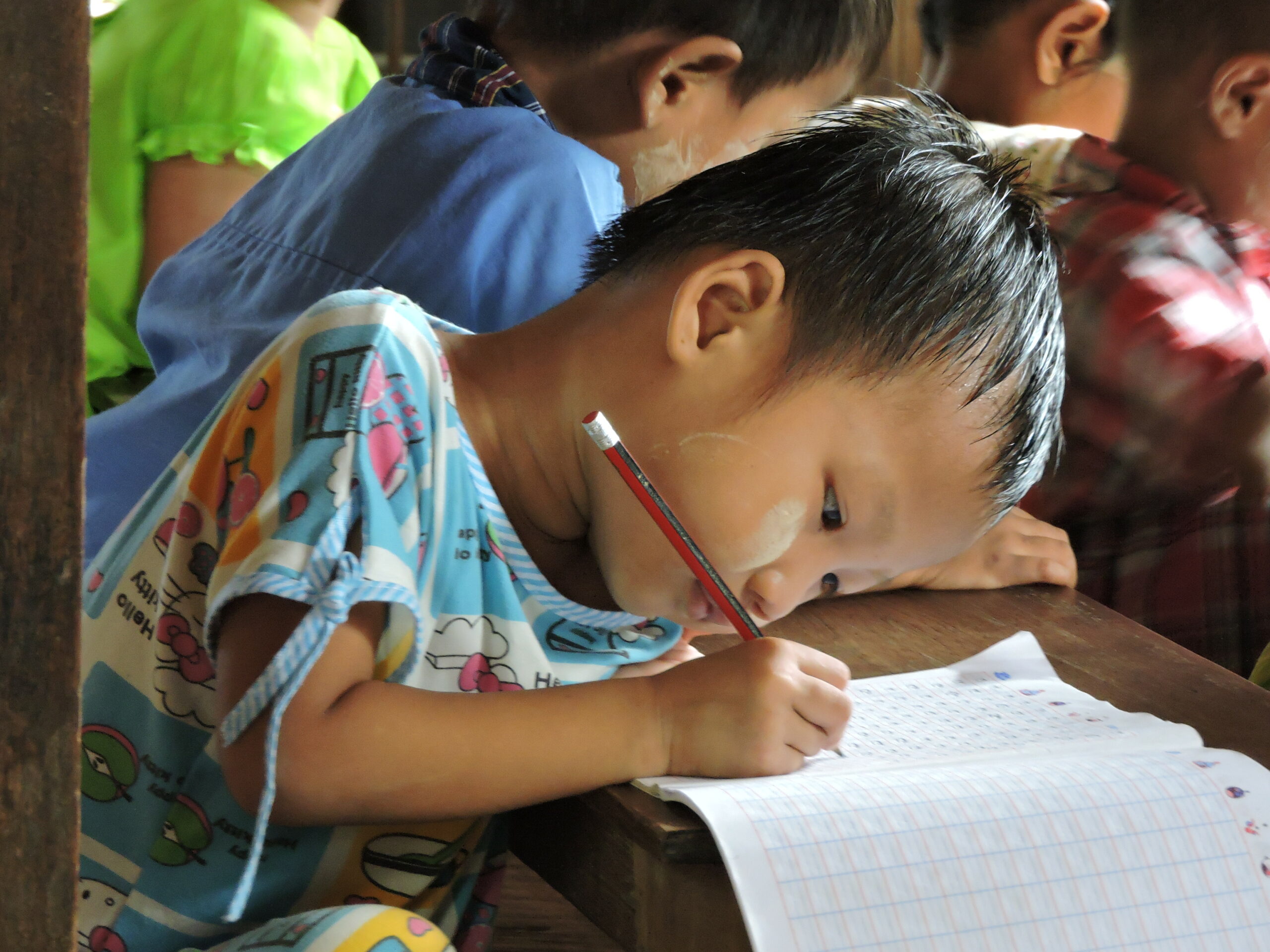
It is a real challenge for children in Tedim to go to school. This child sponsorship is a unique opportunity for these children to […]
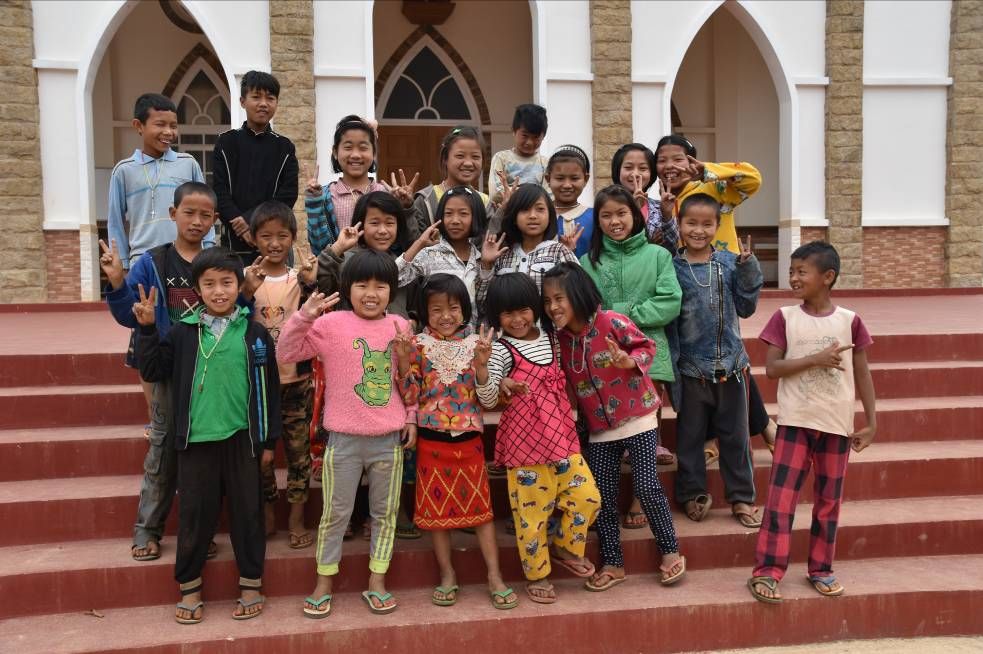
The Nam Khai programme supports the education of children who live in an isolated rural region plagued by armed conflict, drug trafficking and human […]
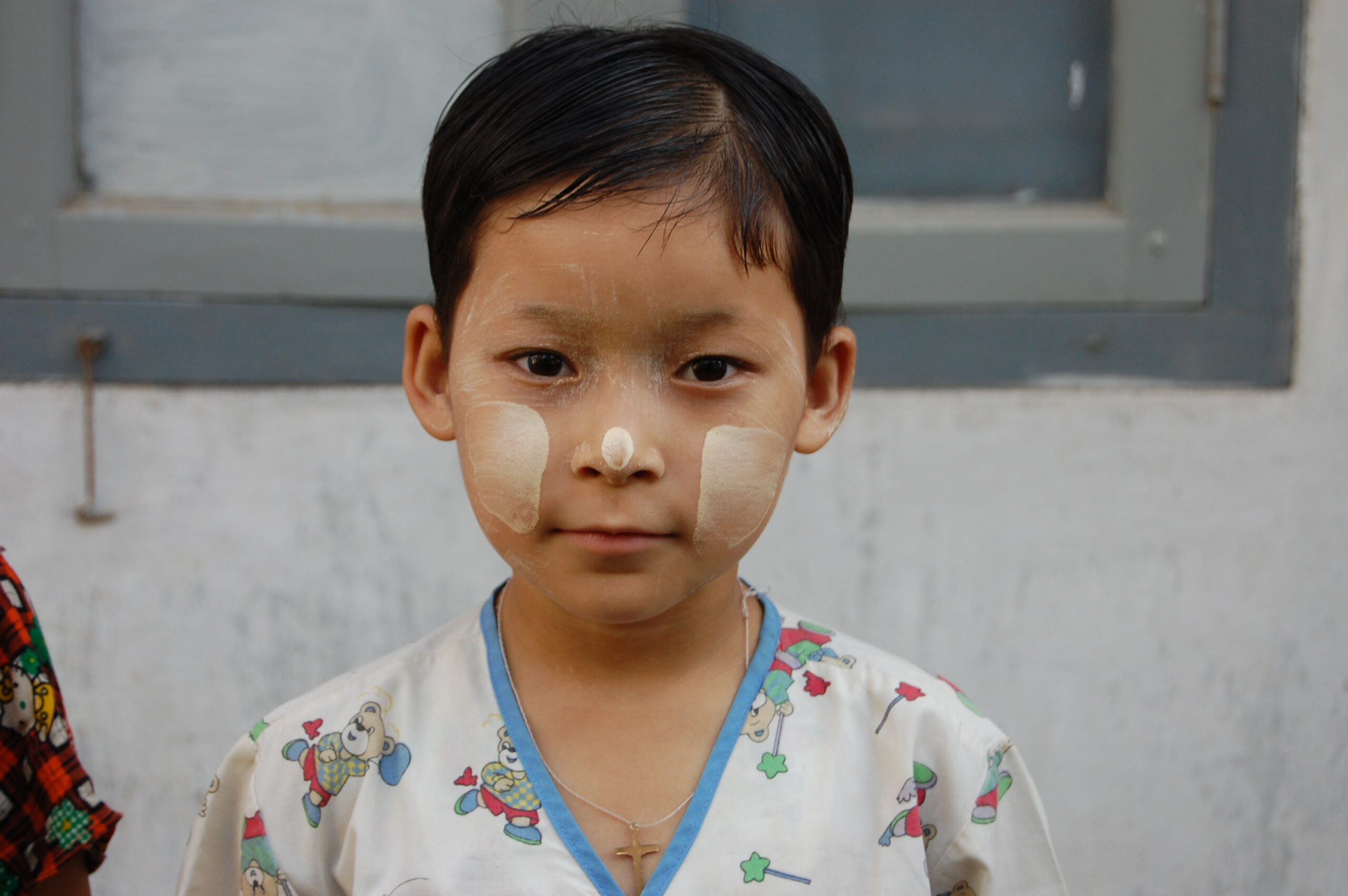
Sponsor a child from Myanmar
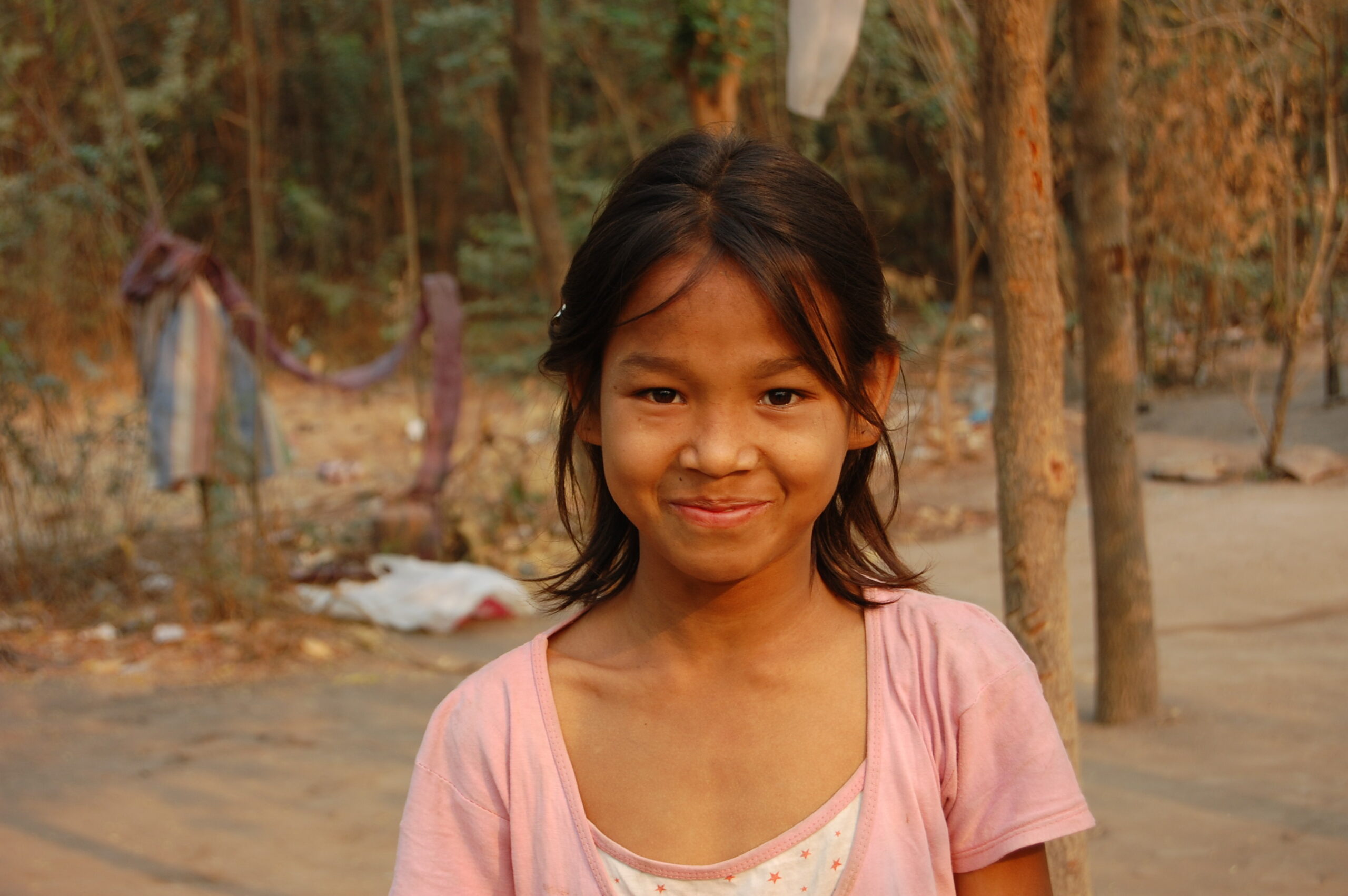
The Kyauk Tan centre, located east of Yangon, caters to children from communities that live on the margins of development. One-third of the children […]